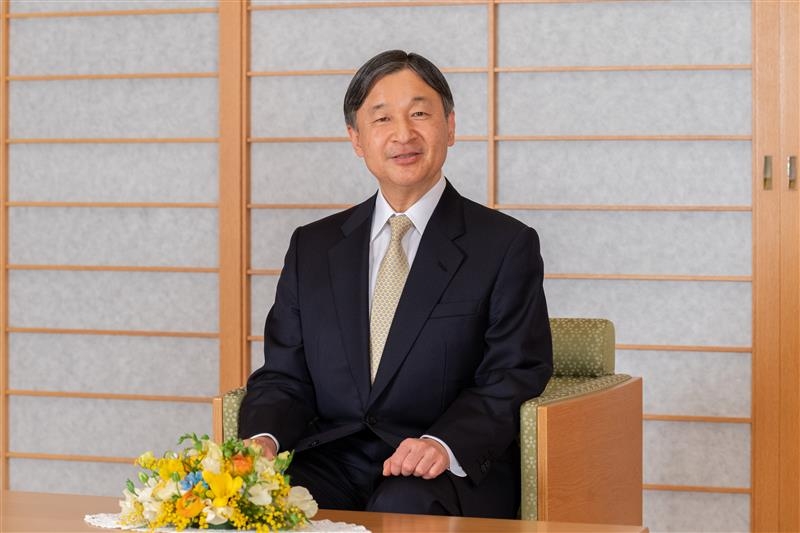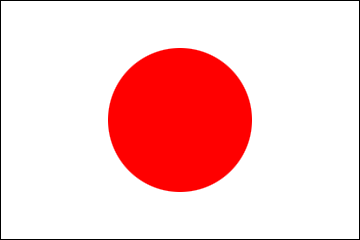Congratulatory Message by H.E. Mr. OTAKA Masato, Ambassador of Japan to Thailand, on the occasion of His Majesty the Emperor’s Birthday
2025/2/23
 Photo by : Imperial Household Agency of Japan
Photo by : Imperial Household Agency of Japan
Today, it is with great pleasure and honor to celebrate the 65th birthday of His Majesty the Emperor of Japan. We would like to congratulate His Majesty on the occasion of his birthday and express our joy at the long-standing strong ties between the Japanese Imperial Family and the Thai Royal Family.
Japan and Thailand have a long history of exchanges, and we have overcome many difficulties together, such as natural disasters and the COVID-19 pandemic, and deepened our friendship. In 2024, new governments were inaugurated in both Japan and Thailand, and the Embassy has been working together to further promote Japan-Thailand relations under these new governments. The Noto Peninsula earthquake that occurred in January last year and the floods in northern Thailand were the occasions for communities in both countries to support each other in the disaster areas, and it was a year that reaffirmed the bonds between the two countries.
In addition to this, last year was a special year for Japan and Thailand in the economic field, as it marked the 70th anniversary of the start of Japan's Official Development Assistance (ODA) to Thailand, the 70th anniversary of the establishment of the Japanese Chamber of Commerce (JCC) in Bangkok, and the 70th anniversary of the establishment of the JETRO Bangkok office, and the 50th anniversary of the establishment of the Japan Foundation, Bangkok. Looking back over the past 40 years, the cumulative amount of investment from Japan to Thailand is about 4 trillion baht, accounting for 40% of the total direct investment in Thailand, and Japan is the leading investor in Thailand, with about 6,000 Japanese companies operating in the country. The two countries have established close economic ties, especially in the manufacturing sector, including the automotive industry, and in the future, we would like to actively work on areas where the public and private sectors of both countries can cooperate, while also promoting cooperation in new areas such as space, digital, and the environment, as well as addressing common issues such as the declining birthrate and aging population, and climate change.
The number of people traveling between the two countries is also steadily increasing, with about 1.15 million Thais visited Japan in 2024, making it the highest number of visitors from any ASEAN country. In addition, the Osaka-Kansai Expo 2025 will be held in Osaka, Japan in April this year. The theme is “Designing Future Society for Our Lives,” and Thailand will also have a pavilion. Food is also an important element that connects the two countries, and there are currently about 6,000 Japanese restaurants in Thailand, so Japanese food has become a familiar food for Thais. Thai food is also popular in Japan, and “tom yum kung,” which was registered as an intangible cultural heritage last year, is one of the Thai dishes most familiar to the Japanese, and traditional sake brewing in Japan has also been registered as an intangible cultural heritage by UNESCO as well. I hope that people-to-people exchanges between the two countries will become even more active through such tourism and food.
We also welcome the Paetongtarn administration’s soft power policy. Thailand has assets that are known worldwide, such as Thai cuisine and domestic tourist destinations, and it is only natural that we expect them to contribute to the Thai economy. Japan wants to work with Thailand to strengthen the soft power of both countries.
In addition, amid the increasingly severe international situation, including the situation in Ukraine, Myanmar, and the Middle East, I would like to continue to work with long-time friends to cooperate on various issues and to foster strong relations between Japan and Thailand. In particular, I sincerely hope that the two countries will work hand in hand to further develop their relations by promoting exchanges between the younger generations, so as to pass on the bonds of friendship between the two countries to the next generation as equal partners.

Japan and Thailand have a long history of exchanges, and we have overcome many difficulties together, such as natural disasters and the COVID-19 pandemic, and deepened our friendship. In 2024, new governments were inaugurated in both Japan and Thailand, and the Embassy has been working together to further promote Japan-Thailand relations under these new governments. The Noto Peninsula earthquake that occurred in January last year and the floods in northern Thailand were the occasions for communities in both countries to support each other in the disaster areas, and it was a year that reaffirmed the bonds between the two countries.
In addition to this, last year was a special year for Japan and Thailand in the economic field, as it marked the 70th anniversary of the start of Japan's Official Development Assistance (ODA) to Thailand, the 70th anniversary of the establishment of the Japanese Chamber of Commerce (JCC) in Bangkok, and the 70th anniversary of the establishment of the JETRO Bangkok office, and the 50th anniversary of the establishment of the Japan Foundation, Bangkok. Looking back over the past 40 years, the cumulative amount of investment from Japan to Thailand is about 4 trillion baht, accounting for 40% of the total direct investment in Thailand, and Japan is the leading investor in Thailand, with about 6,000 Japanese companies operating in the country. The two countries have established close economic ties, especially in the manufacturing sector, including the automotive industry, and in the future, we would like to actively work on areas where the public and private sectors of both countries can cooperate, while also promoting cooperation in new areas such as space, digital, and the environment, as well as addressing common issues such as the declining birthrate and aging population, and climate change.
The number of people traveling between the two countries is also steadily increasing, with about 1.15 million Thais visited Japan in 2024, making it the highest number of visitors from any ASEAN country. In addition, the Osaka-Kansai Expo 2025 will be held in Osaka, Japan in April this year. The theme is “Designing Future Society for Our Lives,” and Thailand will also have a pavilion. Food is also an important element that connects the two countries, and there are currently about 6,000 Japanese restaurants in Thailand, so Japanese food has become a familiar food for Thais. Thai food is also popular in Japan, and “tom yum kung,” which was registered as an intangible cultural heritage last year, is one of the Thai dishes most familiar to the Japanese, and traditional sake brewing in Japan has also been registered as an intangible cultural heritage by UNESCO as well. I hope that people-to-people exchanges between the two countries will become even more active through such tourism and food.
We also welcome the Paetongtarn administration’s soft power policy. Thailand has assets that are known worldwide, such as Thai cuisine and domestic tourist destinations, and it is only natural that we expect them to contribute to the Thai economy. Japan wants to work with Thailand to strengthen the soft power of both countries.
In addition, amid the increasingly severe international situation, including the situation in Ukraine, Myanmar, and the Middle East, I would like to continue to work with long-time friends to cooperate on various issues and to foster strong relations between Japan and Thailand. In particular, I sincerely hope that the two countries will work hand in hand to further develop their relations by promoting exchanges between the younger generations, so as to pass on the bonds of friendship between the two countries to the next generation as equal partners.

OTAKA Masato,
Ambassador Extraordinary and Plenipotentiary of Japan to the Kingdom of Thailand
Ambassador Extraordinary and Plenipotentiary of Japan to the Kingdom of Thailand
